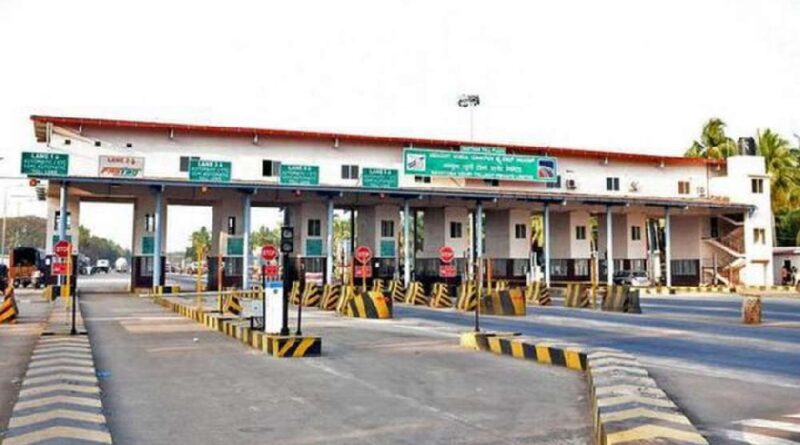E-Border Surveillance: A White Elephant or Work in Progress?
The Federal Government’s N9 billion e-border surveillance system, launched in 2019, has failed to stop illegal migration and curb the activities of bandits, terrorists, and kidnappers. Migrants from neighbouring countries such as Benin, Chad, Niger, Mali, and Cameroon continue to cross into Nigeria despite the project’s implementation.
Minister of Interior, Olubunmi Tunji-Ojo, stated that more than half of Nigeria’s borders are now equipped with automated e-border surveillance systems. During a live national television program in May 2024, he explained, “By October 2024, we will complete the first phase of the e-border project, including marine, air, and land borders. Technology is essential for effective border security.” At the launch of the Bola Ahmed Tinubu Technology Innovation Complex in December 2024, the minister revealed that 250 trained Immigration Service personnel now monitor the e-border control centre around the clock.
However, illegal crossings persist, particularly at the Baruten/Kaiama border in Kwara State, where migrants from Benin Republic reportedly enter Nigeria daily. Former Baruten Local Government Chairman, Abdulrasheed Abdullahi, confirmed this, stating that the border closure since 2020 has not stopped Benin citizens from crossing into the country through illegal routes. He added that the e-border system has not effectively prevented these movements. Similarly, the Emir of Yashikira, Umoru Usman, noted that despite the border closure and the installation of the e-border control system, people from Benin Republic cross the border daily. “Although we cannot provide specific figures, the crossings remain frequent,” he said.
Oba Akintunde Akinyemi, the Eselu of Iselu in Ogun State, criticised the project as ineffective and described it as a “white elephant.” He remarked that the lack of physical barriers or clear demarcations between Nigeria and Benin Republic has allowed for unregulated movement. “There is no visible e-border control system at the land borders. People from Benin enter freely, some even claiming our lands. It’s as if we are sharing the same country,” he said.
A resident of Ilara in Imeko-Afon Local Government, Ade Raheem, described a similar situation, noting that about 35 percent of Ilara town lies within Benin Republic. “There’s nothing clearly separating Nigeria and Benin Republic except for a crossbar. People move freely between the two countries without restrictions,” he said. Residents of Maigatari in Jigawa State also reported similar challenges. Located near Niger Republic, the border community has a longstanding relationship with its neighbours, complicating enforcement efforts. Residents confirmed family ties, shared businesses, and farms across the border, making migration a common occurrence.
Oba Akinyemi also raised concerns about the lack of infrastructure in border communities, stating that the absence of development has worsened security issues. “Unchecked migration contributes to rising crime. Foreigners enter with weapons, commit crimes, and return to their countries. The infrastructural deficit in these areas is alarming,” he said.
Despite the federal government’s claims, residents insist that the e-border project has brought no significant changes. Efforts to contact Nigeria Immigration Service Public Relations Officer Kenneth Udo for comments were unsuccessful, as calls and messages went unanswered.
The thriving markets in border communities further complicate border security. Weekly markets in areas like Maigatari and other border towns serve as crucial points for trade, fostering economic benefits but also presenting challenges for effective immigration control. Residents argue that the strong economic ties built over decades are difficult to sever. According to Sani Dabo, a trader in Maigatari, “The markets bring together people from both sides of the border, and shutting them down entirely would harm the local economy. Many of us depend on these transactions for our daily income.” Similar sentiments echo in Kurmi and Takum LGAs of Taraba State, where market activities remain vital despite concerns about undocumented migrants.
See Also: Granite Truck Crash Kills One at Eleyele, Many Injured.
Security experts emphasise the need for a balanced approach to border management, combining robust surveillance with an understanding of local dynamics. While the introduction of the e-border surveillance system is a step forward, its limitations, including vast, unmanned areas and the continued influx of illegal migrants, highlight the challenges faced by security agencies.
Communities along the borders have also called for more collaboration between federal authorities and local vigilante groups. Vigilante leader Umar Saidu remarked, “We’re willing to help, but we need better resources and support to patrol these borders effectively. Collaboration is essential for achieving long-term security.” Traditional rulers and community leaders, such as those in Bakassi Local Government in Cross River State, have pledged their support for federal government efforts. They emphasised the importance of engaging grassroots leaders who have firsthand knowledge of their communities and can provide valuable insights into curbing illegal immigration.
The recurring issue of illegal immigration in Nigeria underscores the need for a multifaceted strategy. Investments in advanced technology, increased manpower, and economic empowerment for border communities, coupled with a deeper appreciation of cultural and historical ties, are essential for a more effective and sustainable solution. Residents and stakeholders stress the importance of cooperation, both within Nigeria and with its neighbouring countries, to achieve a secure and prosperous border region.
Content Credit| Oyedepo Oluwafifedoyinsola Precious
Picture Credit | https://www.nigeriainfo.fm/




